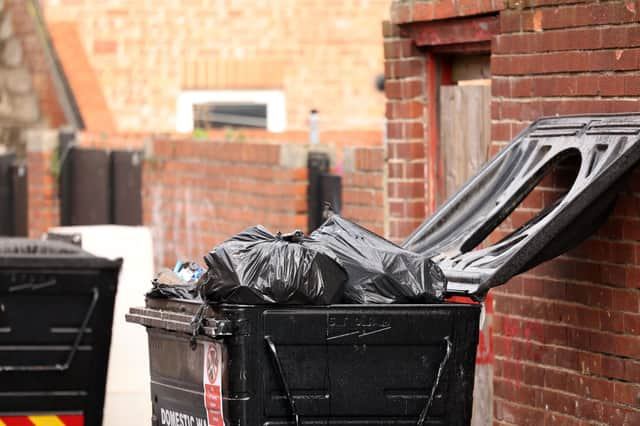Northumberland bin men bring in £20m a year


Bosses at Northumberland County Council (NCC) face an annual bill of about £55 million to run a se ries of waste services, covering everything from homes to schools and businesses.
But fortunately for taxpayers, commercial income means they are only left to pick up about two thirds of the costs.
Advertisement
Hide AdAdvertisement
Hide Ad“We budget just over £30-32 million, [but] we spend the best part of £55 million undertaking all of our activity and managing our waste,” said Greg Gavin, head of neighbourhood services at the local authority.
“Then, from internal customers and external customers, we bring back in £23 million worth of income through those services as well.
“So we spend a lot, but we also put a lot back in, some of it from the outside of the council as a commercial waste, [which] brings in the best part of £2 million from commercial waste customers in the private sector.”
As well as traditional bin collections from households, the county council is also responsible for picking up recycling, garden waste and bulky items, as well as running tips and other drop-off points.
Advertisement
Hide AdAdvertisement
Hide AdPreviously, about 70 per cent of the 45,000 tonnes of material deposited at household waste centres every year is recycled, although the coronavirus pandemic has been blamed for this falling slightly, to 68 per cent.
However, controlling kerbside collections can be more difficult, with spoiled loads costing the council up to £1,000 a time to deal with.
Gavin added: “If there’s a small amount of contamination, processing can pick that out and we have men with pickers at the beginning of the process to take out any obvious or horrible things.
“But if a load is so grossly contaminated by food or nappies or anything of that nature when it arrives, then the whole load has to be rejected [and] costs us about an extra £1,000 to process.”
Advertisement
Hide AdAdvertisement
Hide AdSpeaking to NCC’s Communities and Place Overview and Scrutiny Committee, he was asked about the county’s markets, which his department is also responsible for.